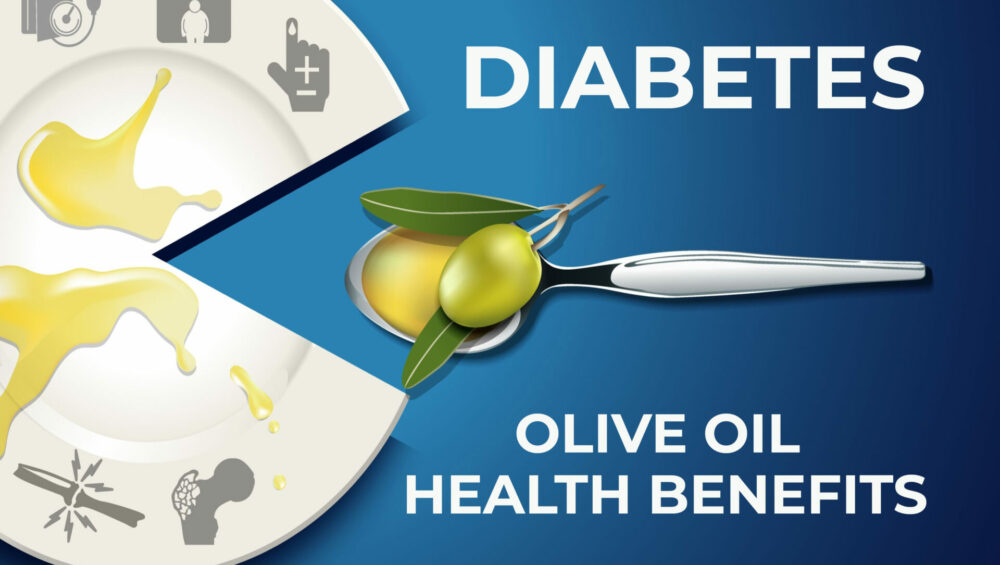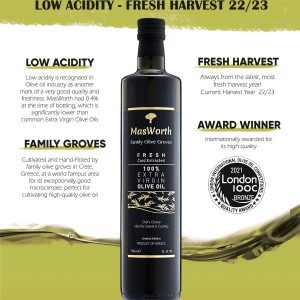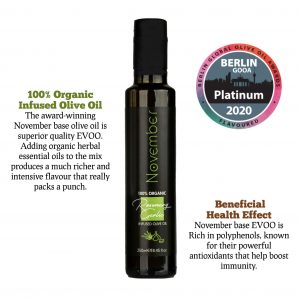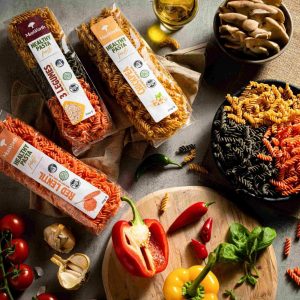Extra Virgin Olive Oil (EVOO) and how it can help Diabetics
Diabetes: A Chronic Global Heath Issue
Most food is converted by the body into glucose, which is released into the bloodstream signalling the pancreas to release insulin enabling the blood sugar to enter cells and then be used as energy. Diabetes is a serious chronic disease that disrupts this process and negatively affects how the body turns food into energy.
There are three main types of Diabetes: Type 1 when the body cannot produce enough insulin due to an autoimmune response; Type 2 when the body cannot use insulin effectively to manage blood sugar levels; and Gestational Diabetes developed during pregnancy which threatens the health of the baby and increases the mothers’ risk of developing Type 2 diabetes in the future.
According to WHO, diabetes is a major global health issue and is associated with numerous chronic health complications, including cardiovascular disease, kidney disease (nephropathy), nerve damage (neuropathy), eye disease (Retinopathy), foot problems and increased risk of some cancers.
Approximately 5-10% of diabetics have Type 1 and will need to administer insulin for the remainder of their lives. Unfortunately, there is no known way to prevent or cure Type 1 Diabetes. Most, between 90-95% have Type 2 Diabetes, which by adopting a healthy lifestyle could either be prevented or delayed. Incorporating healthy habits around diet and exercise can also mitigate the risk of developing the above-mentioned complications by effectively controlling blood sugar, blood pressure and blood fats (Cholesterol).
Cholesterol and the link to Type 2 Diabetes
Cholesterol has an important role in the body as it is responsible for moving fluid across cell membranes and participating in various metabolic functions. High Cholesterol is strongly linked to cardiovascular disease but what about diabetes?
Research has linked insulin resistance in Type 2 Diabetes with a condition called “dyslipidemia”, characterised by:
- high levels of low-density lipoproteins (LDL-C), the large and sticky cholesterol molecules, known as ‘bad’ cholesterol. High glucose levels contribute to LDL-C staying in the bloodstream longer than normal causing health complications.
- low levels of high-density lipoproteins (HDL-C), the smaller cholesterol molecules, known as ‘good’ cholesterol that help to naturally cleanse LDL-C via the liver.
- high triglycerides which are common fats floating in bloodstream.
When high Triglyceride is coupled with high LDL-C, there is a greater risk of hardened arteries and therefore potential heart attack, problems with peripheral circulation called Peripheral Vascular Disease, and stroke.
Type 2 Diabetes & High Cholesterol: The Importance of a Healthy Diet
It is well established that if you have ‘high cholesterol’ you should follow a heart healthy diet to increase your “good” cholesterol intake and decrease your “bad” cholesterol intake. The Mediterranean diet has many health benefits and is certainly considered to be a heart healthy diet and recent studies have demonstrated that one of those benefits is to reduce the risk of developing Type 2 diabetes or improving glycaemic control for those with the disease. The Diabetes Council recommends if you have high cholesterol and diabetes, you should specifically increase monosaturated fats in your diet and reduce saturated and trans fats.
Preliminary research conducted at Sapienza University is one of the first to directly link the consumption of EVOO (the main source of dietary fat within the Mediterranean diet) as part of a balanced diet to a greater reduction in blood sugar and ‘bad’ cholesterol levels compared to many other fats.
The findings are consistent with previous studies, which have also linked EVOO to higher levels of insulin.
According to the Diabetes Council, EVOO, which is generally considered a healthy monosaturated fat can help those with Diabetes in some other important ways too:
- The high level of polyphenols and antioxidants found in EVOO can help diminish the impact of oxidative stress on cells caused by high levels of sugar in the blood. One of the main ways antioxidants may help prevent or potentially reverse damage from oxidative stress is by reducing damage to the endothelium, the layer of cells that line blood vessels.
- Inflammation is the main cause of chronic disease and thought to be an important contributor to diabetes and its complications. The polyphenol oleocanthal acts in a similar way as NSAIDs such as Ibuprofen is found in EVOO giving it a potent anti-inflammatory effect which can help reduce inflammation and therefore the damage that long-term inflammation causes to cells.
EVOO – What you should consider when purchasing
When using EVOO as part of a healthy balanced diet to assist in the management of Type 2 Diabetes, it is important to choose an oil that is high in polyphenols and has been certified as medical grade. Olive oils are categorized based on how they are processed and not all offer the same benefits. For an oil to be categorised as medical grade under the Olive Oil Health Claim (EU 432/2012) it must contain at least 250 mg/kg of hydroxytyrosol, tyrosol or their derivatives. The benefits are obtained with a daily intake of 20 gr of olive oil.
Fresh, early harvested Organic Extra Virgin Olive Oil is always the best option to ensure a good concentration of polyphenols. For daily cooking and baking, there are some great fresh olive oils that may be lower in polyphenols but still provide many benefits.
For a delicious range of independently certified and award-winning medical grade and fresh harvest EVOOs made using Koroneiki Olives from Crete, Greece, visit the MasWorth store today.









